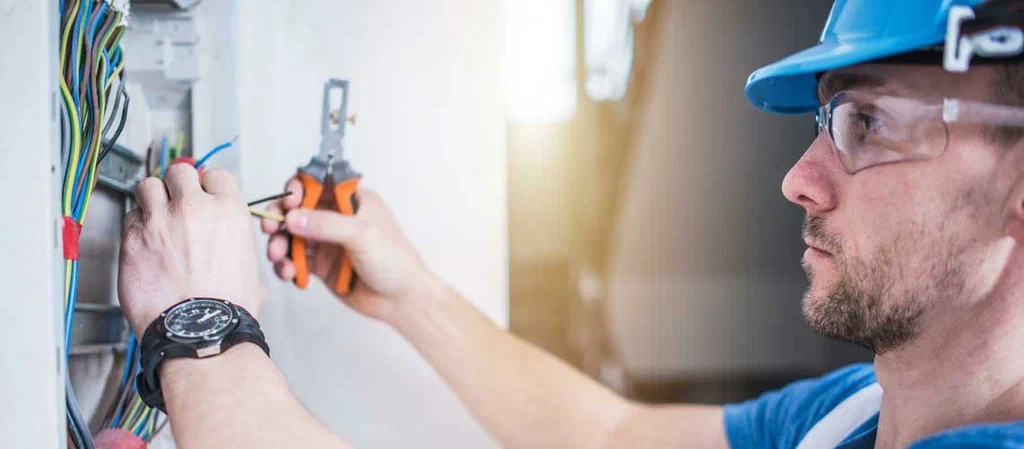Electrician businesses often require funding for various operational needs, ranging from equipment purchases to workforce expansion. An electrician business loan is a financial product specifically designed to support the unique needs of electricians and their companies. It provides access to capital, allowing businesses to meet short-term requirements or long-term growth goals effectively.
How Electrician Business Loans Work
Loan Application Process
To obtain an electrician business loan, the first step is to complete a loan application. This process involves submitting relevant documents, such as proof of business registration, financial statements, and a business plan. Lenders evaluate this information to assess the creditworthiness of the applicant and the potential of their business.
Types of Electrician Business Loans
Several types of electrician business loans are available, depending on the specific needs of the business. These include:
- Term Loans: Fixed amounts borrowed for a specific period with predetermined repayment terms.
- Equipment Financing: Loans intended for purchasing or upgrading equipment crucial to electrical operations.
- Business Lines of Credit: Flexible funding that allows electricians to withdraw funds as needed, up to a set limit.
- Invoice Financing: Loans provided against unpaid customer invoices to improve cash flow.
- SBA Loans: Government-backed loans offering favorable terms for small businesses, including electricians.
Eligibility Criteria
To qualify for an electrician business loan, businesses need to meet the lender’s eligibility requirements. Common criteria include:
- Minimum operating period (e.g., six months to two years)
- Proof of stable income and cash flow
- Satisfactory credit score
- Documentation of business and personal financial history
Loan Terms and Conditions
The terms of an electrician business loan vary by lender. Typical terms include:
- Interest Rates: Fixed or variable rates depending on the loan type.
- Repayment Periods: Duration may range from months to several years.
- Collateral Requirements: Some loans may require assets as security, such as equipment or property.
Loan Disbursement and Use of Funds
Once approved, the loan amount is disbursed to the business, often as a lump sum or in installments. Electrician businesses can use these funds for specific purposes, such as:
- Buying tools and equipment
- Paying for marketing and advertising campaigns
- Managing operational expenses like rent and utility bills
- Covering payroll for electricians and administrative staff
Factors Affecting Loan Approval
Credit Score
A strong credit score is often a key factor in loan approval. Lenders use it to gauge the financial reliability of the applicant.
Business Plan
An effective business plan demonstrates the loan’s purpose and outlines how the funds will be utilized. It helps build lender confidence in the borrower’s repayment ability.
Revenue and Cash Flow
Consistent revenue and positive cash flow reassure lenders about the business’s ability to repay the loan on time.
Industry Trends
The overall performance and trends within the electrical industry may influence the approval process. A booming industry often works in favor of the applicant.
Repayment of an Electrician Business Loan
Repayment Schedule
Electrician business loans are typically repaid in monthly installments, which include principal and interest. Some lenders may offer flexible repayment schedules to align with the business’s cash flow.
Penalties for Late Payments
Late payments may attract penalties, such as additional fees or increased interest rates. It is essential for borrowers to understand these terms and plan repayments accordingly.
Refinancing Options
Businesses struggling to meet their repayment obligations can consider refinancing their loans. Refinancing can provide better terms, such as lower interest rates or extended repayment periods, making it easier to manage debt.
Common Challenges in Using Electrician Business Loans
Managing Loan Amounts
Improper allocation of funds can lead to financial strain. It is crucial for businesses to allocate the loan amount effectively across various needs.
Rising Interest Rates
For loans with variable interest rates, rising rates can increase the overall repayment burden. Borrowers must be prepared for such fluctuations.
Ensuring ROI on Investments
If the loan is used for growth-related activities, such as marketing or expansion, businesses must ensure that these investments generate sufficient returns to cover the loan costs.
Choosing the Right Lender for an Electrician Business Loan
Researching Lenders
Businesses should compare multiple lenders to find the one that offers favorable terms. Online reviews, recommendations, and consultations with financial advisors can be helpful.
Evaluating Loan Offers
Important aspects to consider when evaluating loan offers include:
- Interest rates
- Repayment terms
- Fees (e.g., origination fees, prepayment penalties)
- Flexibility in repayment
Building a Relationship with the Lender
A strong relationship with the lender can result in personalized loan options, better terms, and ongoing financial support for future needs.
Conclusion
An electrician business loan is a valuable financial tool that provides the necessary funds to support operations, invest in growth, and overcome financial challenges. By understanding how these loans work and carefully managing their use, electricians can ensure their businesses thrive in a competitive industry.
Here, you can read more Articles

